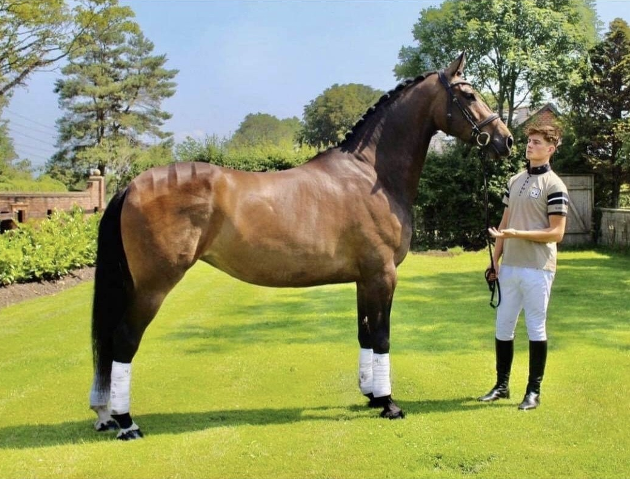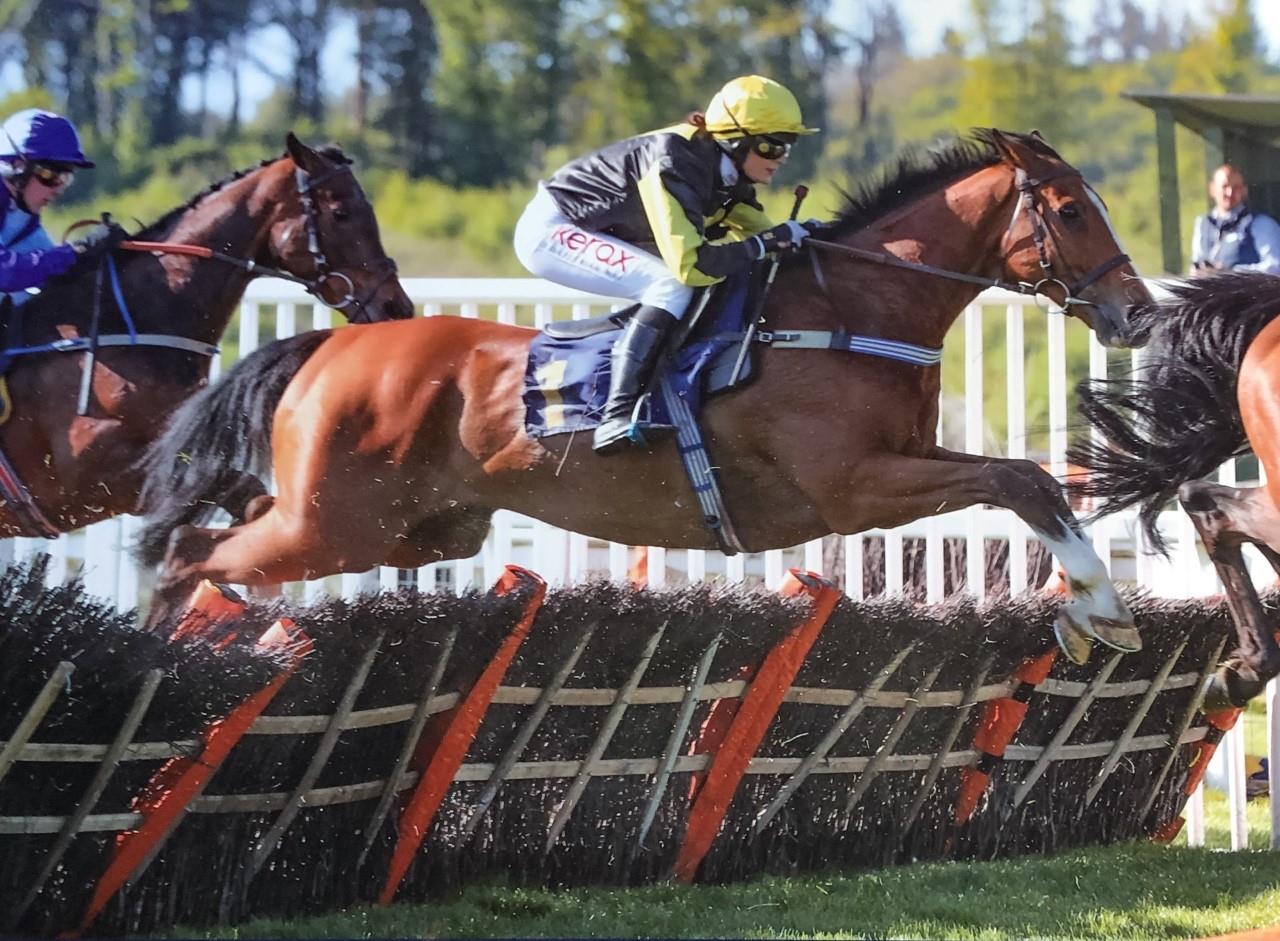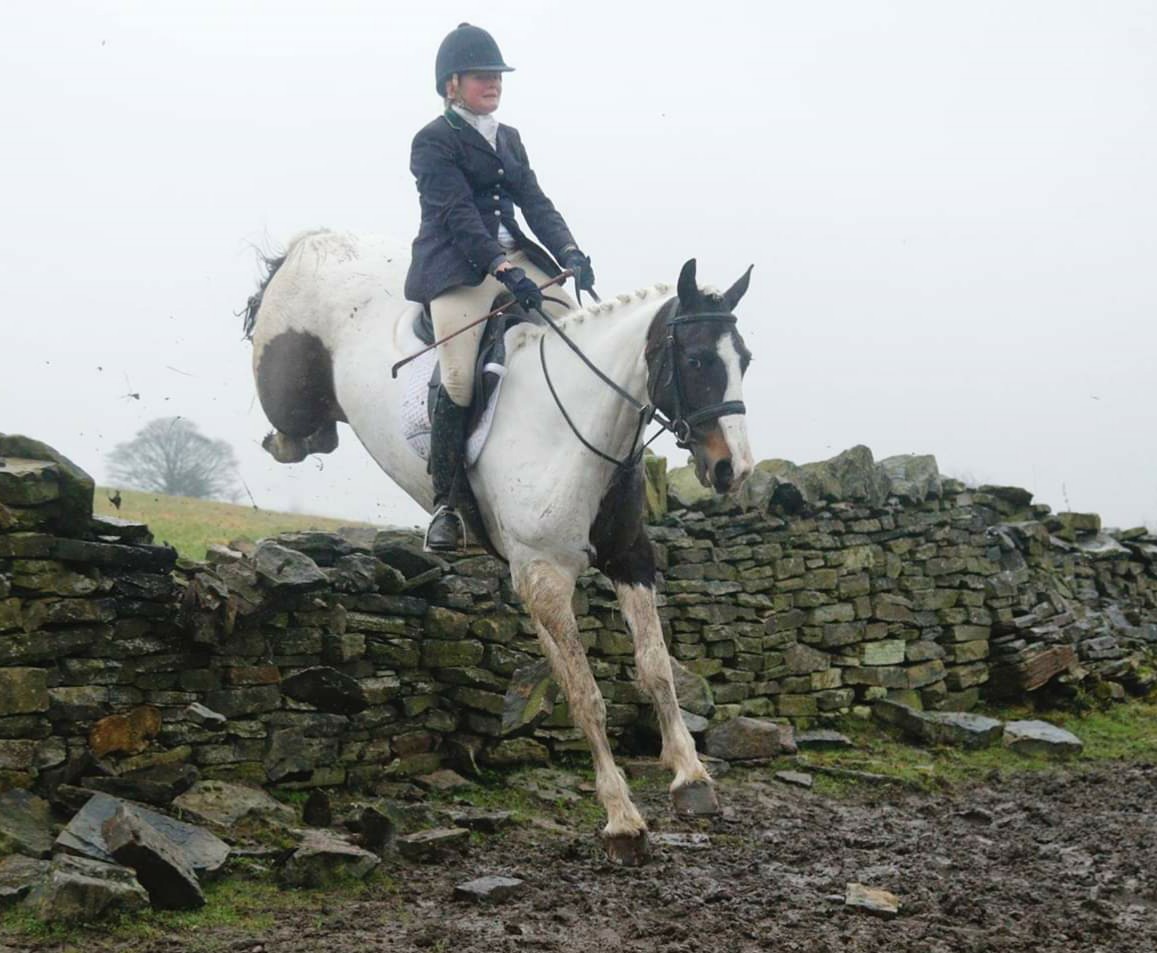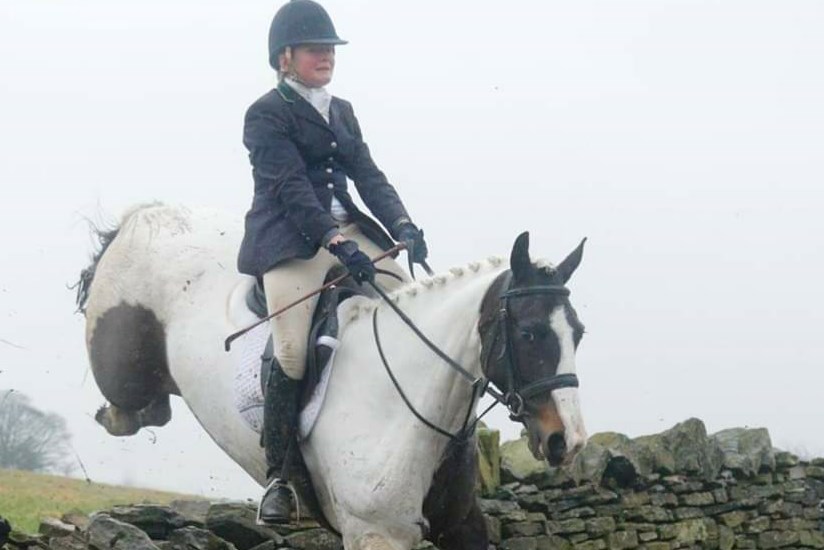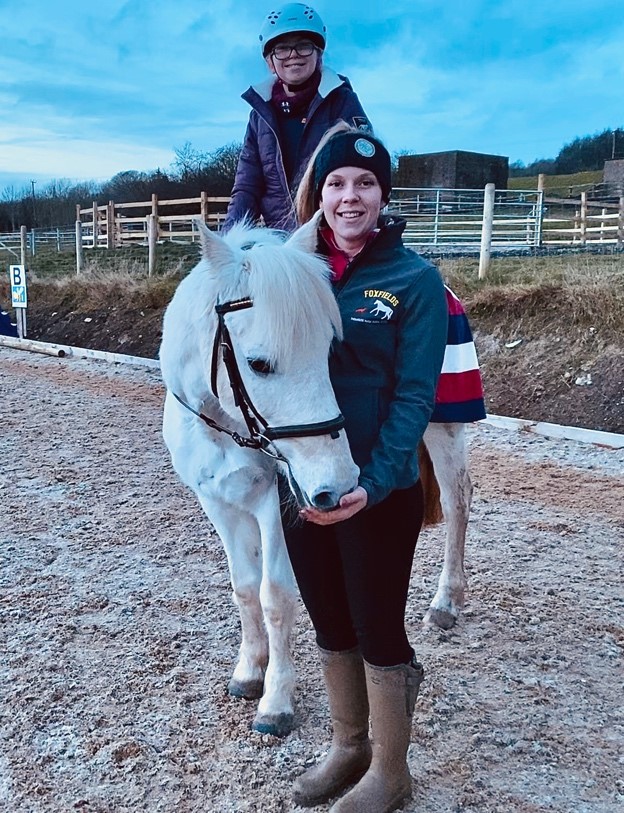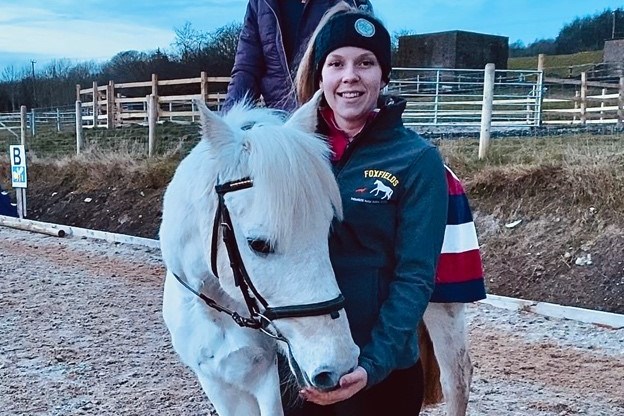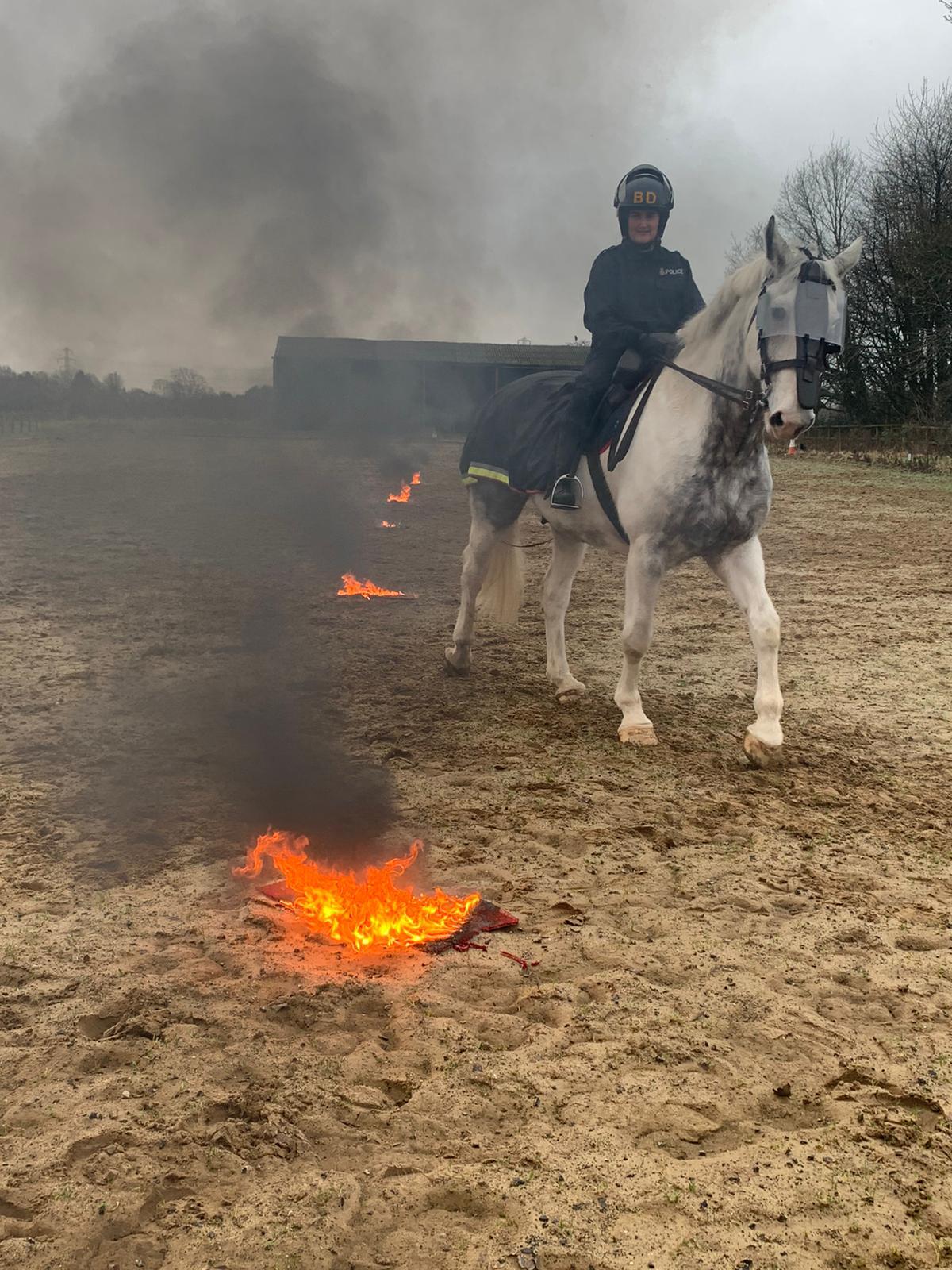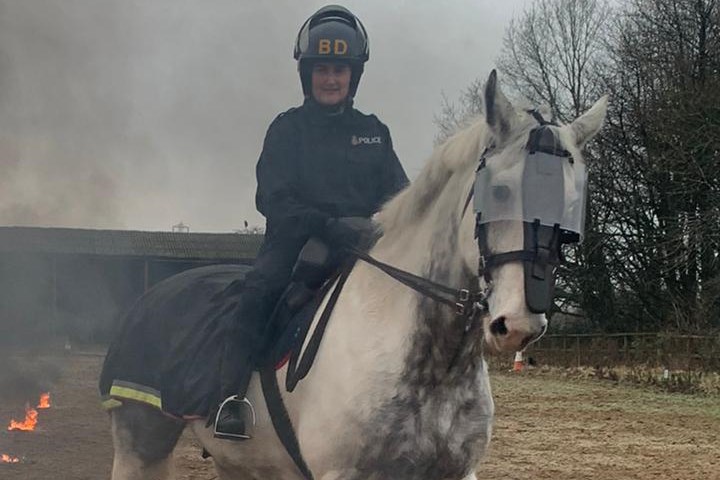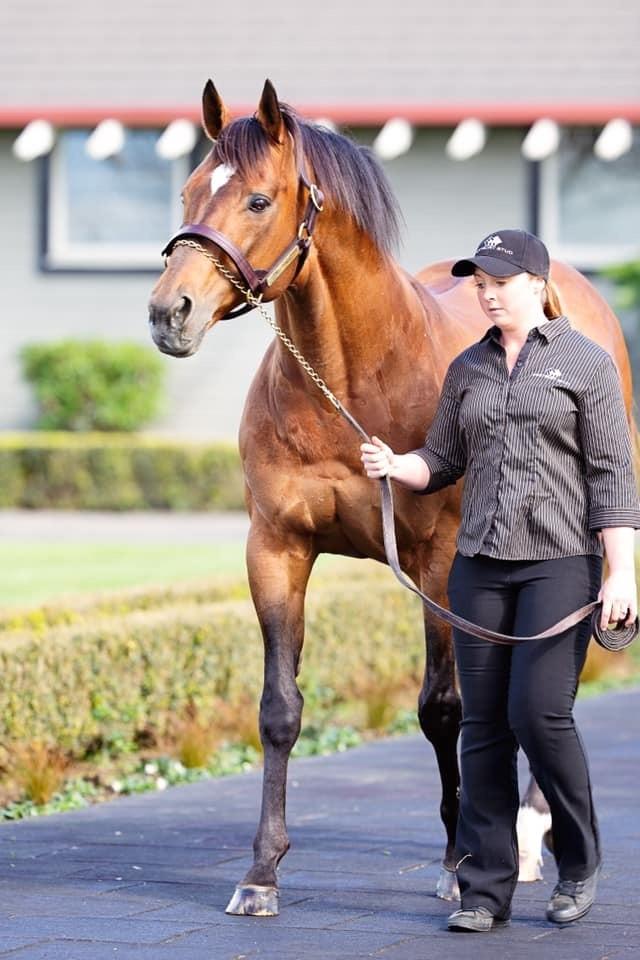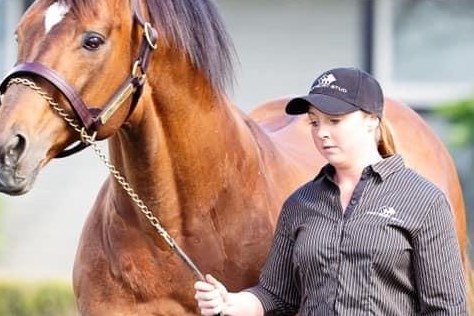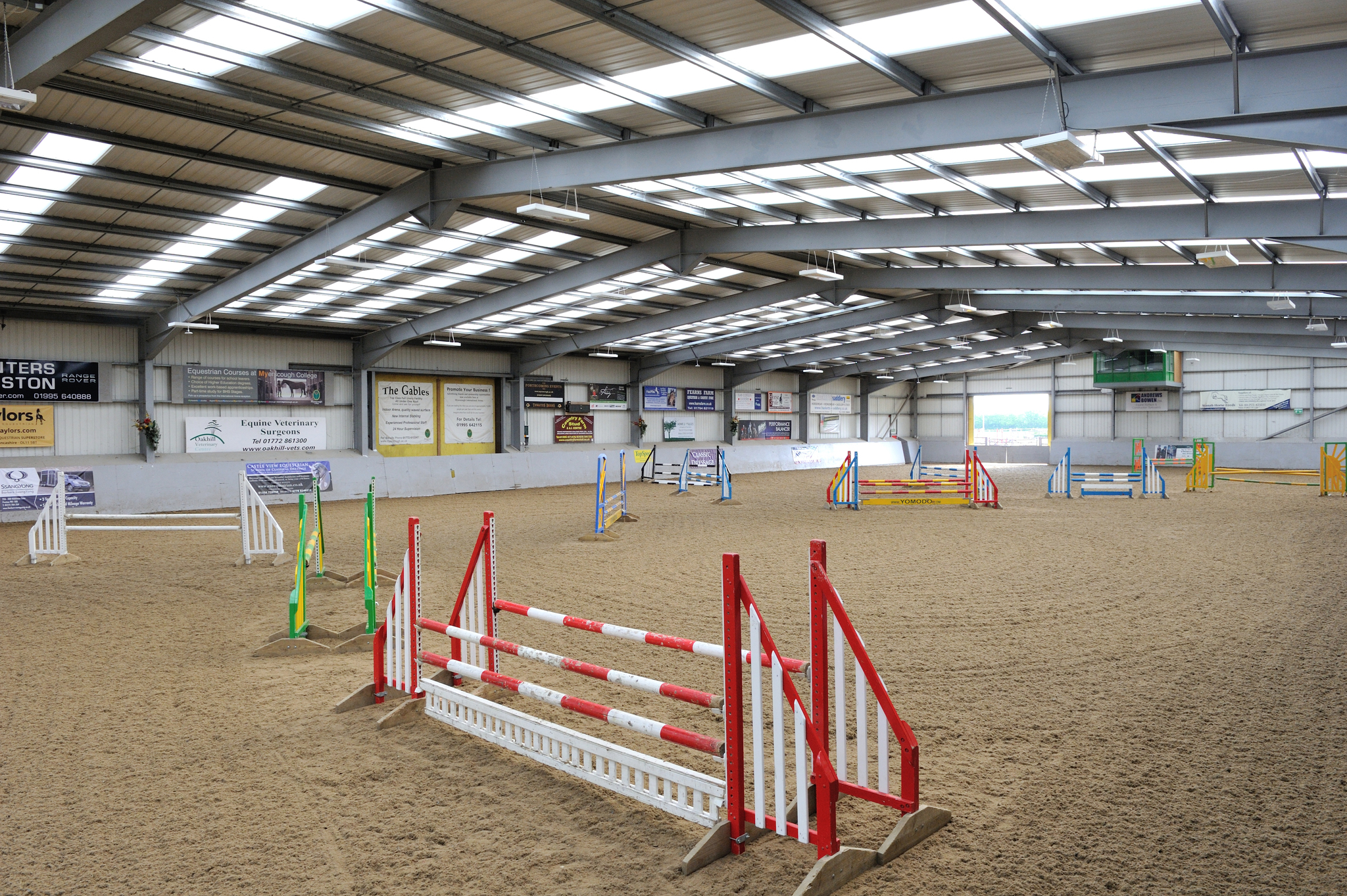Course modules
- Advanced Technical Certificate (360) – Year 1
- Advanced Technical Diploma (540) – Year 1
- Advanced Extended Technical Diploma (720) – Year 2
- Advanced Extended Technical Diploma (1080) – Year 2
Advanced Technical Certificate (360) – Year 1
Principles of Health and Safety
This unit aims to provide you with an understanding of the principles of health and safety and identify how these can be applied in practice within land-based or related industries. You will be able to recognise common health and safety practices and processes which you will encounter within the workplace. The land-based sector has one of the worst fatal accident records of any major industrial sector and a lack of basic training and/or competency is often a contributory factor.
Undertake and Review Work Experience
The aim of this unit is to give you the skills needed to identify, participate in and review work experience in the environmental and land-based sector. You will examine career and progression opportunities within the environmental and land-based sector. You will develop skills in understand and progressing through the application process. There will be a focus on interpersonal skills and you will have the opportunity to present evidence of your achievements through the unit.
Undertake Stable and Yard Operations
This unit aims to provide you with an understanding of the principles of stable yard operations and how these can be applied in practice. The unit will enable you to plan, carry out and manage a range of activities on the yard. You will be able to produce daily work routines and manage the work of others on the yard. You will also be able to undertake health care checks, including assessing the condition of horse’s feet and shoes, and produce preventative care treatment schedules. You will be able to apply skills to care for and manage stable and grass kept horses.
Equine Health
The purpose of this unit is to provide you with an understanding of the principles of equine health. You will be able to recognise the signs of good and ill health in equines and evaluate these as indictors of health. You will carry out health checks on equines and produce equine health plans. The structure and role of pathogenic organisms will be examined in addition to prevention and treatment of a range of diseases and disorders covered. You will be able to carry out routine and non-routine treatments for equines.
Horse Tack and Equipment
This unit aims to provide you with an understanding of the principles of horse tack and equipment and how these can be applied in practice. The aim of this unit is to provide you with the skills to be able to carry out the fitting and evaluation of horse tack and equipment. You will be able to fit and evaluate the fit of saddles, bridles, rugs, bandages, boots and other equipment. You will also develop and understanding of the requirements of different disciplines and of the effects of a range of training aids.
Prepare Horses for Presentation (Optional)
The purpose of this unit is to provide you with an understanding of the principles of horse presentation and how these can be applied in practice. The aim of this unit is to provide you with the skills to be able to carry out the preparation of horses for public presentation. The unit will prepare you to go on and continue to practice and improve these skills if they progress. You will develop skills in clipping and trimming horses to improve their appearance and present them appropriately.
Working and Training Horses from the Ground (Optional)
The purpose of this unit is for you to have an understanding of the principles of working horses from the ground and how these can be applied in practice. The aim of this unit is to develop your practical skills in traditional methods of schooling from the ground, whilst developing an understanding of contemporary approaches to training from the ground. This unit is largely practically based and you will work horses on the lunge as well as understand how to use alternative methods to exercise. You will also develop your skills in assessing and improving horses when working them from the ground.
Exercising Horses (Optional)
This unit aims to provide you with an understanding of the principles of riding and exercising horses and how these can be applied in practice. The aim of the unit is to enable you to exercise horses safely under saddle. Whilst you are required to follow instructions, on completion of this unit you will be able to ride a horse in the arena, in the open and on a road. The learner will also be able to ride through a jumping grid, and jump a short course of small fences.
Advanced Technical Diploma (540) – Year 1
Principles of Health & Safety
This unit aims to provide you with an understanding of the principles of health and safety and identify how these can be applied in practice within land-based or related industries. You will be able to recognise common health and safety practices and processes which you will encounter within the workplace. The land-based sector has one of the worst fatal accident records of any major industrial sector and a lack of basic training and/or competency is often a contributory factor.
Undertake and Review Work Experience
The aim of this unit is to give you the skills needed to identify, participate in and review work experience in the environmental and land-based sector. You will examine career and progression opportunities within the environmental and land-based sector. You will develop skills in understand and progressing through the application process. There will be a focus on interpersonal skills and you will have the opportunity to present evidence of your achievements through the unit.
Equine Health
The purpose of this unit is to provide you with an understanding of the principles of equine health. You will be able to recognise the signs of good and ill health in equines and evaluate these as indictors of health. You will carry out health checks on equines and produce equine health plans. The structure and role of pathogenic organisms will be examined in addition to prevention and treatment of a range of diseases and disorders covered. You will be able to carry out routine and non-routine treatments for equines.
Horse Tack and Equipment
This unit aims to provide you with an understanding of the principles of horse tack and equipment and how these can be applied in practice. The aim of this unit is to provide you with the skills to be able to carry out the fitting and evaluation of horse tack and equipment. You will be able to fit and evaluate the fit of saddles, bridles, rugs, bandages, boots and other equipment. You will also develop and understanding of the requirements of different disciplines and of the effects of a range of training aids.
Prepare Horses for Presentation
The purpose of this unit is to provide you with an understanding of the principles of horse presentation and how these can be applied in practice. The aim of this unit is to provide you with the skills to be able to carry out the preparation of horses for public presentation. The unit will prepare you to go on and continue to practice and improve these skills if they progress. You will develop skills in clipping and trimming horses to improve their appearance and present them appropriately.
Working and Training Horses from the Ground (Optional)
The purpose of this unit is for you to have an understanding of the principles of working horses from the ground and how these can be applied in practice. The aim of this unit is to develop your practical skills in traditional methods of schooling from the ground, whilst developing an understanding of contemporary approaches to training from the ground. This unit is largely practically based and you will work horses on the lunge as well as understand how to use alternative methods to exercise. You will also develop your skills in assessing and improving horses when working them from the ground.
Exercising Horses (Optional)
This unit aims to provide you with an understanding of the principles of riding and exercising horses and how these can be applied in practice. The aim of the unit is to enable you to exercise horses safely under saddle. Whilst you are required to follow instructions, on completion of this unit you will be able to ride a horse in the arena, in the open and on a road. The learner will also be able to ride through a jumping grid, and jump a short course of small fences.
Biological Systems of Horses
e purpose of this unit is to develop your understanding of the structure and function of the horses’ biological systems. The aim is that by the end of this unit, you will be able to apply an understanding of adaptations to the structure and function of the biological systems of the horse. You will be able to explain how and why specific traits arise. This unit is designed to provide you with knowledge of the anatomical and physiological systems of horses. You will be equipped with sound knowledge of the basis of how the horse’s body functions under normal conditions. You will examine the control mechanisms of the horse’s body and how the animal’s senses have adapted to their environment. (Advanced Technical Diploma 540 only)
Equine Feeding and Nutrition
The purpose of this unit is for you to develop your knowledge and understanding of Equine nutritional needs. You will be able to describe the function, digestion and absorption of the major nutrients. You will explore the nutritional values of different food types and be able to calculate the dietary requirements for horses at different life stages. This will be used this to design, monitor, record and evaluate feeding regimes. You will also investigate nutritionally responsive disorders, the effect these have on animals and the impact on their dietary requirements. (Advanced Technical Diploma 540 only)
Horse Behaviour and Welfare
This unit aims to provide you with an understanding of the principles of horse behaviour and welfare. The aim of this unit is to develop your knowledge and understanding of the horse’s natural instincts and behaviour and the effects of domestication you will also be able to recognise and determine the cause of stereotypical behaviour. The evolution of the horse will also be examined. You will also observe horse behaviour, record the results and analyse the findings. By the end of the unit you will know how to promote the welfare of horses. (Advanced Technical Diploma 540 only)
Advanced Extended Technical Diploma (720) – Year 2
The Principles of Equitation
This module covers the theory side of training horses from the ground, on the flat and over fences. They will study the techniques required and methods used for a range of horses in different situations.
Riding Horses on the Flat (Optional)
This module develops the riders position further from riding and exercising horses to be able to ride a variety of horses on the flat. They will develop the horses using a wide range of training exercises and assessing the horses performance
Introduction to Equestrian Coaching (Optional Preston)
The unit provides learners with the skills necessary to apply basic principles of equitation and stable management in a teaching context. The learner will develop the skills to include clarity of communication and confidence with dealing with a range of learning needs. The unit enhances understanding of equitation and stable management techniques. Learners will develop their teaching ability by conducting riding lessons on the flat and over ground poles plus a lead rein and lunge lesson and deliver a short lecture.
The Principles of Horse Rehabilitation and Therapy (Optional Liverpool)
An excellent unit for those wishing to rehabilitate horses in the future. It allows learners to understand the nature of horse performance injuries, effective use of therapeutic and diagnostic techniques, complementary therapies and the laws and regulations relating to equine rehabilitation.
Working and Training Horses from the Ground
The purpose of this unit is for you to have an understanding of the principles of working horses from the ground and how these can be applied in practice. The aim of this unit is to develop your practical skills in traditional methods of schooling from the ground, whilst developing an understanding of contemporary approaches to training from the ground. This unit is largely practically based and you will work horses on the lunge as well as understand how to use alternative methods to exercise. You will also develop your skills in assessing and improving horses when working them from the ground.
Exercising Horses
This unit aims to provide you with an understanding of the principles of riding and exercising horses and how these can be applied in practice. The aim of the unit is to enable you to exercise horses safely under saddle. Whilst you are required to follow instructions, on completion of this unit you will be able to ride a horse in the arena, in the open and on a road. The learner will also be able to ride through a jumping grid, and jump a short course of small fences.
Biological Systems of Horses
The purpose of this unit is to develop your understanding of the structure and function of the horses’ biological systems. The aim is that by the end of this unit, you will be able to apply an understanding of adaptations to the structure and function of the biological systems of the horse. You will be able to explain how and why specific traits arise. This unit is designed to provide you with knowledge of the anatomical and physiological systems of horses. You will be equipped with sound knowledge of the basis of how the horse’s body functions under normal conditions. You will examine the control mechanisms of the horse’s body and how the animal’s senses have adapted to their environment.
Contribute to Managing an Equine Event
Successful running of equestrian events can be a great income stream for many businesses. This module teaches the students the relevant regulatory framework so that they can apply the correct business management skills to running an equine event. Learners will take part in the planning and running of an event during the module. Learners will be required to evaluate it in terms of success and make recommendations for future events.
Introduction to the Principles of Young Horse Handling, Training and Backing (Optional Preston)
Myerscough College provides their students with a range of young horses from two years old and above. The students have the unique opportunity to work with these horses and develop them for real through their training, which includes halter training to backing and beyond. A very practical, hands on unit with extremely rewarding results.
Advanced Extended Technical Diploma (1080) – Year 2
The Principles of Horse Fitness
This module allows students to understand the requirements for preparing horses for fittening, planning fitness programmes and monitoring the horse throughout a fitness programme. Understanding physiological effects on the horses’ systems throughout fittening will also be included.
The Principles of Equitation
This module covers the theory side of training horses from the ground, on the flat and over fences. They will study the techniques required and methods used for a range of horses in different situations.
Business Management in the Land-based Sector
You will look at the business environment, the roles and responsibilities of those employed in land-based businesses and resource requirements. You will develop your skills in business operations and produce a business plan.
Working and Training Horses from the Ground
Ideal for those who wish to develop their skills and learn how to develop horses on the flat, as well as the reasons for why this is so important in training a wide variety of horses. It is also an excellent opportunity to form background knowledge of working with young horses and alternative methods, which are both traditional and contemporary. It is a very hands on practical unit with an extensive range of horses on site to work with.
Contribute to Managing an Equine Event
Successful running of equestrian events can be a great income stream for many businesses. This module teaches the students the relevant regulatory framework so that they can apply the correct business management skills to running an equine event. Learners will take part in the planning and running of an event during the module. Learners will be required to evaluate it in terms of success and make recommendations for future events.
Riding Horses on the Flat (Optional)
This module develops the riders position further from riding and exercising horses to be able to ride a variety of horses on the flat. They will develop the horses using a wide range of training exercises and assessing the horses performance.
Riding Horses over Fences (Optional Preston)
This module develops riders to understand effective jumping techniques. It requires them to ride horses through grids and over courses of fences. The horses will be varied to ensure a wide range of experience is achieved by all riders. The module also requires the riders to ride over cross country fences.
Introduction to Equestrian Coaching (Optional Preston)
The unit provides learners with the skills necessary to apply basic principles of equitation and stable management in a teaching context. The learner will develop the skills to include clarity of communication and confidence with dealing with a range of learning needs. The unit enhances understanding of equitation and stable management techniques. Learners will develop their teaching ability by conducting riding lessons on the flat and over ground poles plus a lead rein and lunge lesson and deliver a short lecture.
Introduction to the Principles of Young Horse Handling, Training and Backing (Optional Preston)
Myerscough College provides their students with a range of young horses from two years old and above. The students have the unique opportunity to work with these horses and develop them for real through their training, which includes halter training to backing and beyond. A very practical, hands on unit with extremely rewarding results.
The Principles of Competition Grooming (Optional)
The aim of this unit is to provide the learner with skills and knowledge to be able to prepare a horse for a competition and provide care for it throughout the day. The unit includes the theory behind the preparation of the horse prior to competition, including routine and specialist care and monitoring fitness. The learner will develop the skills to prepare the horse and the necessary equipment for the competition day and they will be required to look after a competition horse for the duration of the event. The unit also covers the immediate and long-term aftercare of the horse, equipment and vehicle.
The Principles of Horse Rehabilitation and Therapy (Optional)
An excellent unit for those wishing to rehabilitate horses in the future. It allows learners to understand the nature of horse performance injuries, effective use of therapeutic and diagnostic techniques, complementary therapies and the laws and regulations relating to equine rehabilitation.
Undertake a Specialist Project in the Land-based Sector
Research projects are often carried out to create or improve a product, service or process. This module allows students to select and carry out their own research project.
Customer Care and Retail Merchandising (Optional Liverpool)
The Principles and Practices of an Equine Stud (Optional Liverpool)
Entry requirements & additional information
Entry requirements
Advanced Technical Certificate (360) – Year 1
An English GCSE at C (4) or higher plus a minimum of three others at C (4) or higher, including Maths or Science
Advanced Technical Diploma (540) – Year 1
An English GCSE at C (4) or higher plus a minimum of four others at C (4) or higher, including Maths and Science
Advanced Extended Technical Diploma (720) – Year 2
An English GCSE at C (4) or higher plus a minimum of three others at C (4) or higher, including Maths or Science
Advanced Extended Technical Diploma (1080) – Year 2
An English GCSE at C (4) or higher plus a minimum of four others at C (4) or higher, including Maths and Science
Ride assessments will take place at the start of the academic year to determine skills and abilities.
Please note there is a maximum weight limit of 14.5 stone for the riding units.
Applicants for all courses in Equine Studies are expected to show a strong commitment to the industry and a strong personal statement. Learners are required to have practical experience of handling and working with horses.
Learning and assessment
Assessment of technical qualifications is a mixture of internal practical assessment of skills conducted by the teaching team, internal written assignments marked by the teaching team, an externally set synoptic examination that combines the knowledge and practical skills of all of the mandatory units, an external online exam that combines the knowledge of all mandatory units and an online health and safety exam. The assessments and exams are spread throughout the year.
Optional Units:
Study programmes are designed to be individualised to the needs of each student and we offer different optional units to cater for these needs.
The three riding units allow students to progressively develop their riding and training ability both in the saddle on the flat and over fences. This route is practically demanding and we require students to be riding at BHS Stage 2 level for entry which would be assessed and discussed at the formal interview stage and once the course has started.
The working horses from the ground unit allows students to develop their ability to work a range of horses on the lunge, in long reins and loose. These are skills that are in high demand in the industry and will help anyone wishing to undertake the role of groom or backing young horses.
The young horse unit (year 2), allows students to become familiar with the art of working young horses from the ground and backing and training of young horses. The College has a minimum of four young horses each year that are specifically for the use of students undertaking this unit. Students work with the staff team and each other to back the young horses and train them in all aspects of ridden work.
The new businesses unit (year 2) allows students to develop the key skills of exploring new business initiatives within the land-based sector to ensure that any future business they operate will be able to take advantage of the current market status.
Stable Yard Practical
Students will gain work experience on the College Yard and at the Preston Centre will be required to attend weekend duties where they will care for the horses one weekend in five. A rota is produced at the start of the year with the students allocated weekend yard for the entire academic year.
Students also work on the yard, looking after the college horses, one day per week within their normal timetabled hours.
Progression
On successful completion of the Level 3 Advanced Technical Extended Diploma in Equine Management learners will be able to progress onto a Higher Education courses or into employment in the equine industry.
Careers
Opportunities within equine and the allied industries are currently very good. The City and Guilds Technical Qualifications provides the certification and experience for entry into the industry at an operational level with future prospects for management.
Special requirements
Costs that are mandatory for the course:
Specialist Clothing and Equipment (approx £100)
- Plain navy blue or black jodhpurs
- College sweatshirt/ polo shirt in navy/ black, or similar plain sweatshirt/ polo shirt
- Navy or black jacket (warm and waterproof advised)
- Boots for yard work – wellingtons or strong boots
- Riding hat to current standard with kitemarks – PAS 015 (2011), VG1 01.040 (2014-12), ASTM F1163 (2004a or 04a onwards), SNELL E2016, AS/NZS 3838 (2006 onwards) or EN1384:2023.
- Gloves and hairnet
- Riding boots or leather gaiters (suede chaps are not allowed as they rub the horse’s sides)
- Jumping whip and schooling whip
- Back protector is compulsory for jumping lessons
(Hooded jumpers, bright or garish clothing is not acceptable on the yards).
Resources and Facilities Contribution, approximately £95 Preston, £30 Liverpool (subject to change).
Costs that are optional for the course:
Students will be given the opportunity to participate in enrichment activities throughout the duration of the course. For example:
- Horse of the Year Show £35
- WHW £5
- Badminton Horse Trials £150
Work experience
All students are required to undertake a minimum of two weeks of external work experience placement as part of their course. This is a core part of the course and ensures that all students are putting their skills into practice within the work place. Support is available to find a suitable placement and placements must have employers and public liability insurance.
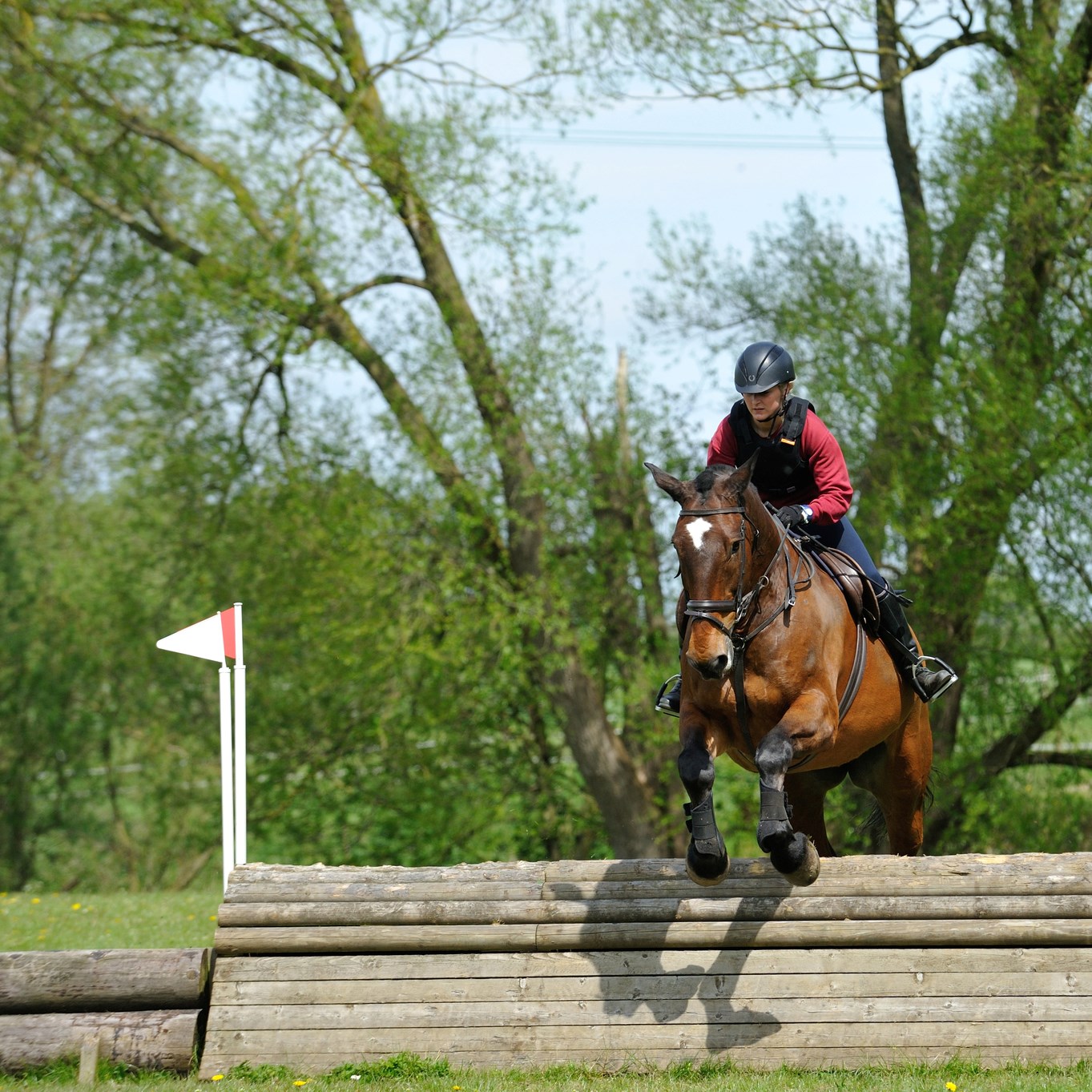
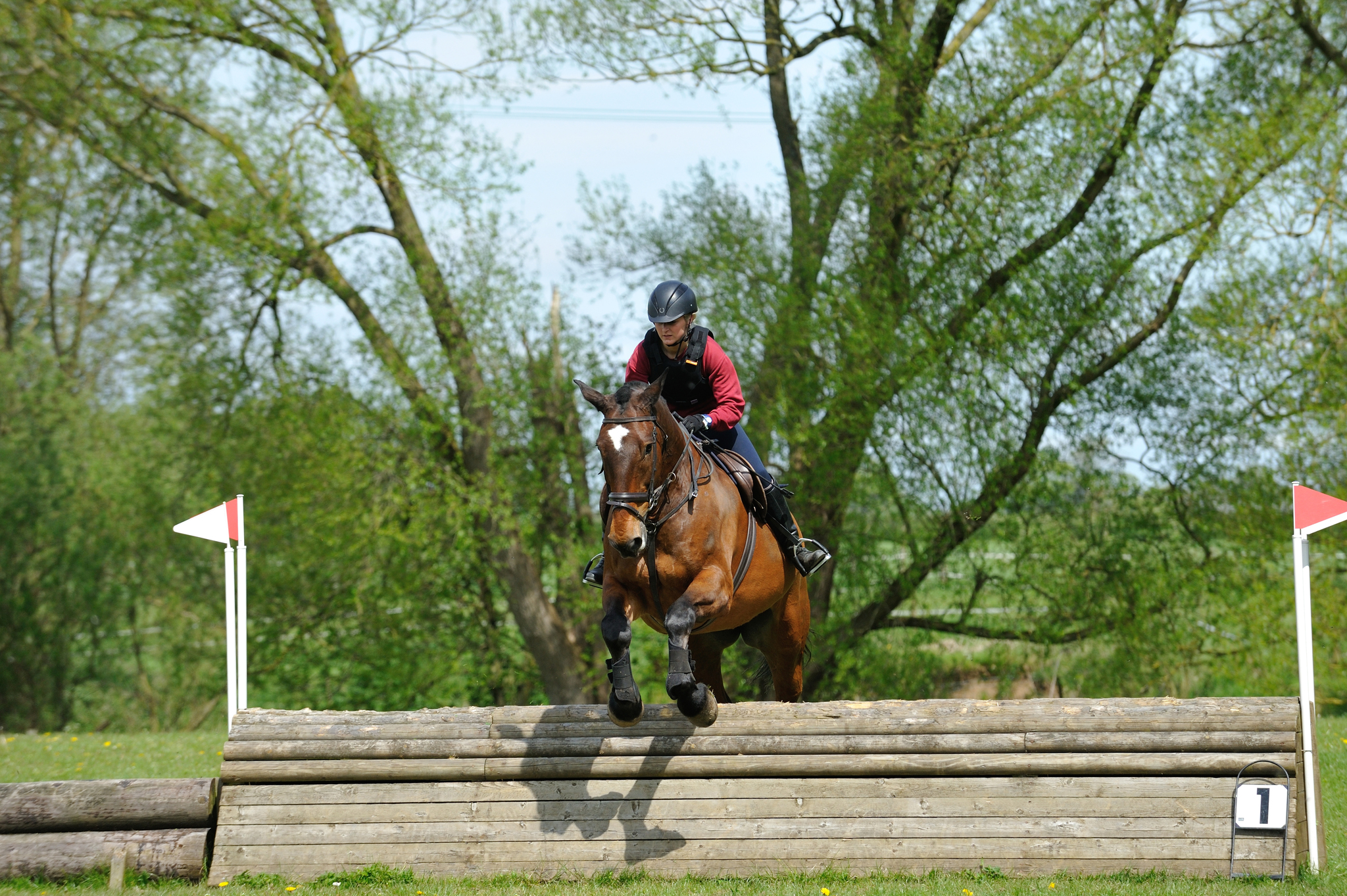
Latest news, Equine studies
-
Myerscough College to welcome European Champion Dressage star for masterclass event
- Published
- Thursday 22 February
-
Higher education Research Expo a success
- Published
- Friday 17 Nov 2023
-
Equine degree students present research at national conference
- Published
- Thursday 11 May 2023
-
Degree students share their research at Graduate Showcase
- Published
- Friday 28 Apr 2023
-
Oonagh Murphy
- Published
- Friday 18 Nov 2022
